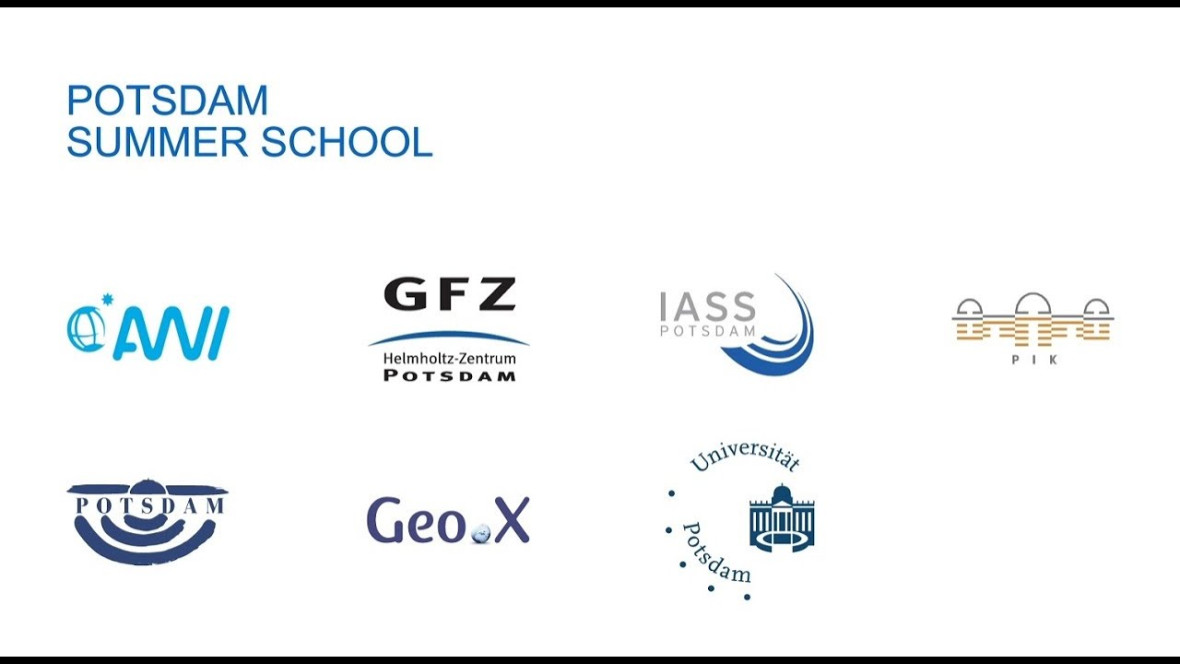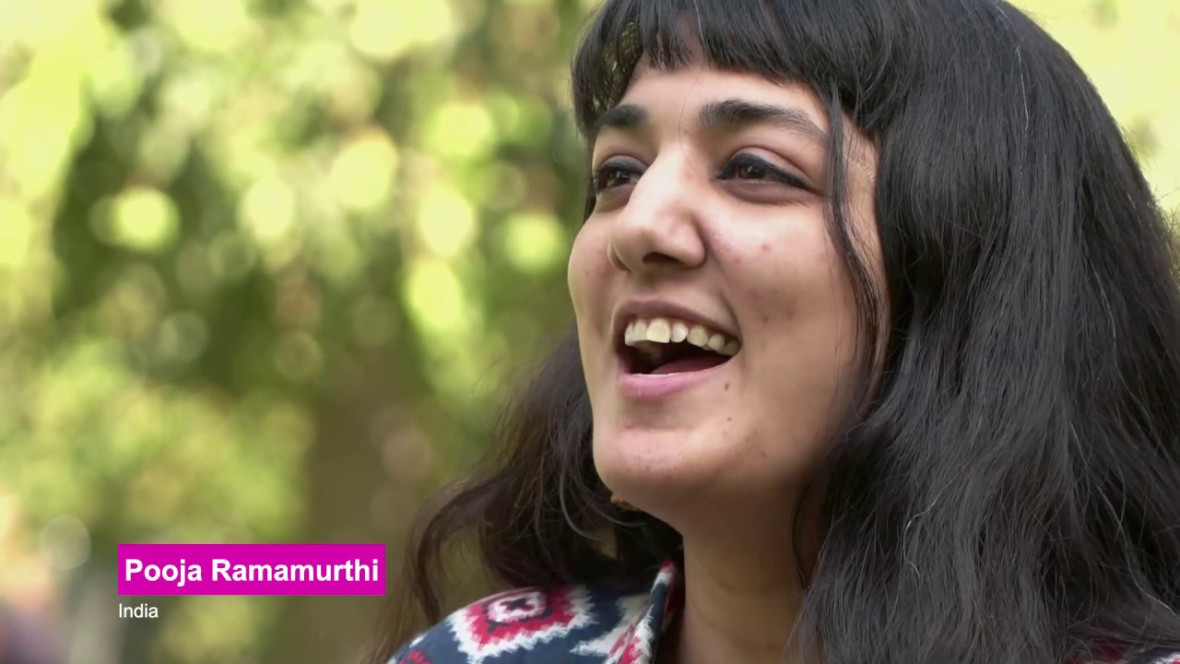Water: Our Global Common Good – The Hydrosphere across Land and Sea
16.11.2020
From 9 to 18 August 2021 the seventh Potsdam Summer School will explore the theme of “Water: Our Global Common Good – The Hydrosphere across Land and Sea”. Early-career scientists and young professionals from the private sector, governmental agencies, and non-governmental organisations are invited to apply for a place at the Summer School 2021.
UPDATE: Due to the worldwide pandemic situation it has been decided that the Potsdam Summer School 2021 will be conducted as an online event in two time slots:
Part I will be run from Aug 09 until Aug 12 and part II from Aug 17 until Aug 20. This will enable us to cover the full programme as if it was held as a presence event in Potsdam. Within the next weeks we will provide more information here. But rest assured that we will do our best to make this a valuable programme even under these challenging circumstances.

Whether frozen, liquid or vaporous, water is the single most precious resource on our planet. The so-called hydrosphere – the combined mass of water found on, under and above the Earth's surface – spans the world’s oceans, rivers, lakes, ground- and soil water and atmospheric water vapour. Water creates unique habitats for animal and plant life. As well as providing societies with food and drinking-water supplies, the hydrosphere is an important renewable energy resource and offers benefits for health and well-being, cultural values, tourism, trade, and transport. The hydrosphere interacts with each of the 17 United Nations Sustainable Development Goals (SDGs) and is a major indicator for the state of our planet.
An interactive and transdisciplinary learning experience
In 2021 the Potsdam Summer School will explore the influence of the state of the hydrosphere on humankind and vice versa. Interactive learning formats will enable participants to gain a better understanding of the state of the hydrosphere as they cooperate to develop possible solutions to challenges at the local, regional and global levels.
Coastal environments, small islands and polar areas are particularly vulnerable to changes in the hydrosphere such as sea level rise and worsening marine pollution. Roughly 680 million people currently live on or near coastlines at low elevations. According to IPCC projections, coastal populations will exceed one billion by 2050.
The programme will focus on three key areas:
- Heavy precipitation, flooding, sea level rise
- Extreme droughts, exploitation of drinking water
- Pollution, accessibility of drinking water, sanitation
The international Summer School will bring together expertise from various scientific disciplines and societal stakeholders. The following questions will take centre stage in the programme:
- What do we know – and don’t know – about the role of the hydrosphere within the Earth system?
- Who are stakeholders and actors in terms of hydrosphere services?
- How can multiple perspectives be merged in integrated strategies?
- What can be done at local, regional and global levels?
- How can we prevent political conflicts?
- How can scientists address audiences from all societal areas?
The next Potsdam Summer School will continue the series of transdisciplinary and interactive events held annually in Potsdam since 2014 (the 2020 Summer School was cancelled due to the coronavirus pandemic). The aim of the Potsdam Summer School is to bring together talented early-career scientists as well as young professionals from the private sector, governmental agencies and non-governmental organisations from different parts of the world to explore issues around future sustainable development. The programme includes contributions from experts, stakeholders, and guest lecturers from high-level national and international institutes and organisations.
In cooperation with Geo.X and the City of Potsdam, the 2021 Potsdam Summer School 2021 is jointly organised by the University of Potsdam, the GFZ German Research Centre for Geosciences, the Alfred Wegener Institute - Helmholtz Centre for Polar and Marine Research (AWI), the Potsdam Institute for Climate Impact Research (PIK), and the IASS.
The call for applications will start on November 16, 2020. The organisers intend to conduct the 10-day programme in a format whereby all participants and speakers will be present in Potsdam. Should it be the case that the overall situation with regard to the current pandemic precludes in-person attendance the organisers will revert to a virtual format. The last day to submit an application will be on March 31, 2021 at 23:59 CET: https://potsdam-summer-school.org
Media
Potsdam Summer School 2021: Water - our global common good

Media
Video about Potsdam Summer School 2019


